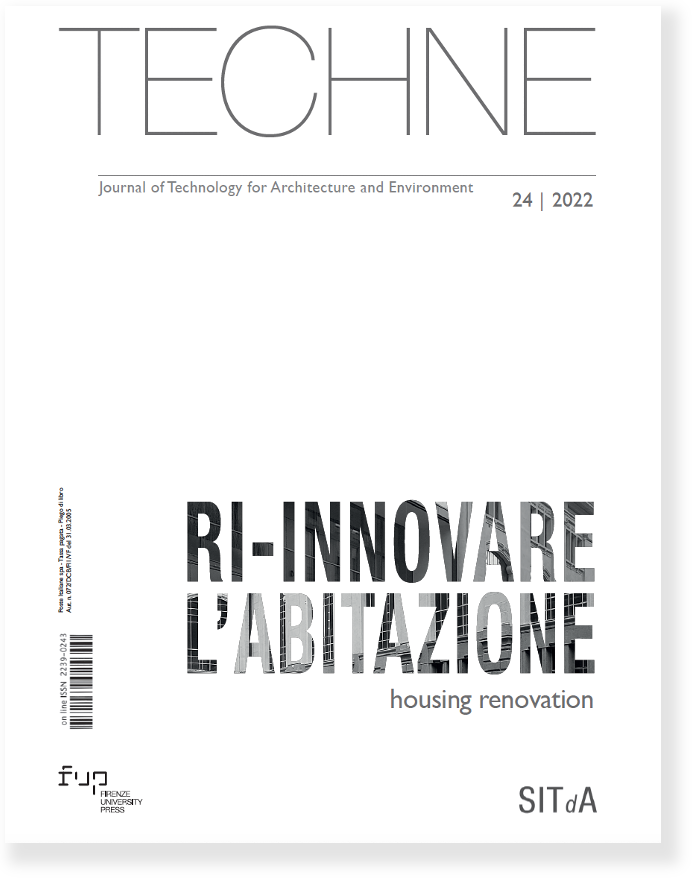Quality of housing for inner areas between specialised supply, proximity welfare and production of new economies
Published 2022-07-26
Keywords
- Inner areas,
- Housing quality,
- Proximity welfare,
- Building renovation,
- Social innovation
How to Cite
Abstract
This paper focuses on the issue of housing in inner areas, presenting a project of the candidacy of the Campania region for the PINQuA national funding programme, which was launched by the Italian Ministry of Infrastructure and Transport in 2020. The project is based on the hypothesis that it is possible to reverse the demographic trend in marginalised areas – characterised by a declining population, a high old-age index, a lack of basic services and, at the same time, a high potential for innovation – with building renovation and differentiated housing offers with high standards of quality and services. Through a systemic and place-based approach, the research uses pilot cases to experiment on themes linked to new housing demands, digital and green innovation, proximity welfare and social cohesion through a multi-actor and multi-level process.






